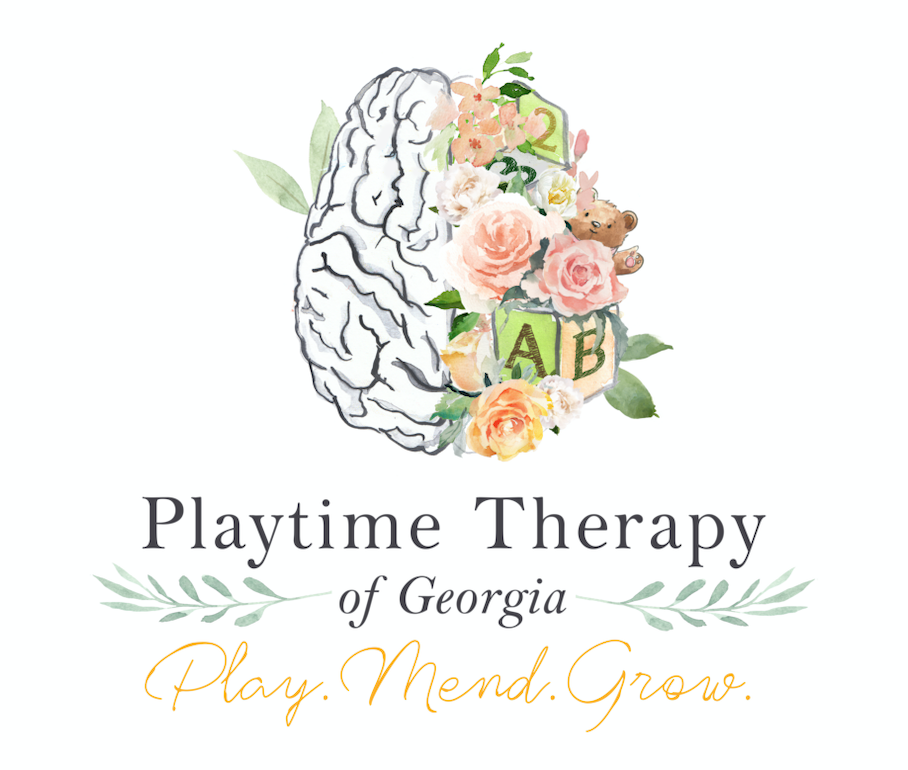Your little one matters.
It can be overwhelming to find a therapist or counselor to suit your child’s needs.
There are so many options! Where is a parent to start? Before we get started, let me briefly explain to you what play therapy is and how it works.
What is play therapy?
Play therapy is special. It is evidence-based, effective, and most of all, fun! Using specific toys, games, sand tray, books, arts and crafts, music, dance, and imagination, play therapy allows a child to express themselves naturally, the way kids are supposed to. What’s really neat is that play therapy helps children learn by promoting brain integration and higher neural processing in a fun, low pressure, meaningful way. When we combine a playful approach with emotional processing and problem solving, research shows us that we integrate the brain more quickly and fully than with traditional behavioral techniques alone. Play changes the chemistry of the brain!
Children typically feel emotions very strongly, but often need help processing emotions in healthy ways. They sometimes need help making sense of what’s going on in their world. Changes, such as divorce, death, a move, a new school, a new sibling, trauma, anxiety, depression, ADHD, developmental delays, other neurodevelopmental differences, and more are reasons a child might need a little extra support. Support usually consists of meeting once a week for 30 or 50 minutes over the course of several months (depending on the level of concern and presenting problem).
There are different types of play therapy. As someone who specializes in working with young children, I have learned that play therapy is not a one-size-fits-all approach. Many child therapists focus on behavior-oriented methods in an effort to get children to comply with expectations. However, young children need relational-based therapy that allows them to work through emotional and behavioral challenges in an effective way. For this reason, I use current neurodevelopmental models of attachment to promote safety and emotional wellness. This includes taking into consideration your child’s individual differences that make them unique. You can learn more about my training, theoretical orientation, and background here.
Finding a therapist that meets the needs of your family is important. It’s got to be a good fit! That’s why I have completed numerous trainings, supervision, and research to bring evidence-based, individualized therapy to the families I serve. I am here to help you navigate the appropriate types of therapy for your child and answer your questions along the way.
How do I help?
My approach to play therapy with children and their families is specific and unique. I use a blended, attachment-based, neurologically, and developmentally informed model of therapy. The core focus of my approach is the idea that children rely on relationships to guide them and teach them. By assessing developmental capacities, sensory profiles, levels of regulation and arousal, and stress thresholds, I then help families by promoting joint attention, co-regulation, developmentally appropriate task initiation, and more. I also help parents and children resolve emotional and behavioral challenges by strengthening their dyadic relationship.
While I value working with your child, I also realize that working with you (the parent or caregiver) is equally as important and instrumental for change to occur. I want you to know that I work hard for you and your child to ensure you get the most out of counseling. Counseling is an expense of both time and money, and I want your experience to be meaningful.
Typically, my therapeutic process involves the following steps:
- Assessing your child for developmentally appropriate play-based behavior. This includes the domains of social emotional functioning, cognitive functioning and also the need for referrals for sensory integration, neurodivergence or neurodevelopmental differences, psychological evaluations, and more.
- Assessing your parent-child relationship to determine what relational needs are currently being unmet or miscommunicated.
- Formulating an individual plan of care for your child, you (the parent), and the family as a whole.
- Implementing change in all significant environments of your child’s life, such as home, school, and/or daycare, and in office visits with me (if needed).
- Maintaining relational changes as needed, until everyone is understood, satisfied, and most of all, happy.
If you have noticed behavioral or emotional changes in your child, please do not hesitate to reach out to me. I’d love to speak with you and see if I am a good fit for your family.
